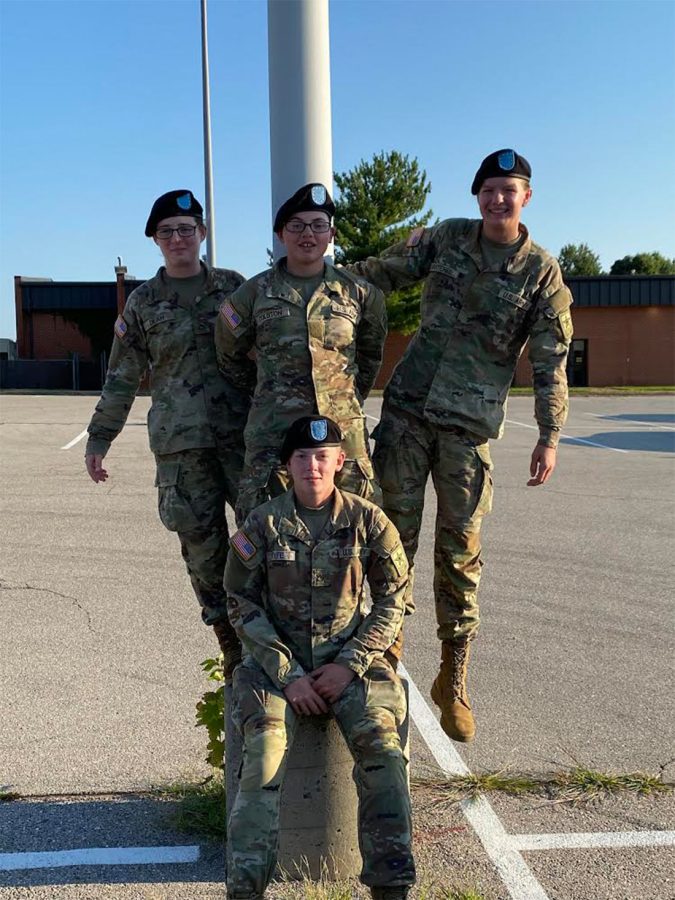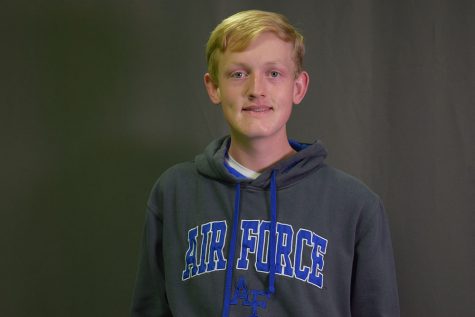Soldier on: Senior Caroline Santerre shares her army journey
May 17, 2023
Sweat beads on Caroline Santerre’s brow, as her muscles strain, battling her mind to force one more push up. She finally succeeds, and she feels all the relief and pride of someone who had conquered Mount Everest. Only, she has, in her own way; she pushed herself harder than she ever had, all for her dream: becoming an FBI agent.
The National Guard is a reserve component of the United States Army and Air Force, providing support to their respective states and the country in times of emergency.
“[Santerre] joined because I wanted to gain valuable experience that will hopefully help me in a future career in counterterrorism in the FBI,” Santerre said.
After graduating high school, Santerre will become a Military Police. In the Indiana National Guard. Military Police protect the lives and property on military installations by enforcing military laws and regulations. They also control traffic, prevent crime and respond to all emergencies. Job training for military police requires 20 weeks of training and on-the-job instruction in police methods. Part of this time is spent in the classroom, and part takes place in the field. Santerre has completed her basic training and will begin her specific job training soon.
“I do enjoy being in the Army National Guard because there are numerous opportunities to get more physically fit, while gaining firsthand experience and gaining knowledge alongside college,” Santerre said. “I would highly recommend it to others who want to attend college because [the state of Indiana] will pay for it.”
According to the state of Indiana, the Indiana National Guard and Air National Guard Supplemental Grant pays for 100 percent of a student’s tuition to any state school, provided the contractual service commitment is satisfied. This grant is given to all members of the Air and Army National Guard who wish to attend a state institution. The schools that the grant applies to more than a dozen Indiana colleges and universities.
“Even if a person doesn’t want to go to college, I would still highly recommend joining active duty and taking online classes or simply continuing in the military as a career,” Santerre said.
Santerre’s basic training experience was unlike anything she had experienced before. A typical high school student’s day is filled with concerns over the next test, homework, sports practice, or other comparatively minor inconveniences. However Santerre looks back on her basic training fondly despite the challenge and she says is appreciative of the opportunity.
“One of my favorite memories would probably be scaling down a 67 foot tower in a harness that I had to make, the friends I made, or the night infiltration course. Moments I didn’t like as much were probably the gas chamber to field training exercises in the hot weather,” Santerre said.
The gas chamber is when soldiers enter the chamber with their gas masks on, then remove them for approximately one minute and recite their name and the last four digits of their social security number. The gas causes a burning sensation but has no lasting ill effects., or the long rucks (marches/walks)
As of now, Santerre is unsure of what her future plans are after completing college but she does have a few goals in mind and a plan to accomplish them.
“I am either going to try to join active duty Army and join the Criminal Investigation Division after college” Santerre said, “or stay local and be a police officer or firefighter until I can join the FBI counterterrorism unit. I’ll possibly stay there or go onto the FBI SWAT team or join another investigation service where I can stay in one place but travel to other countries once in a while”
Enlisting in the military is a big decision, and Santerre’s experience in the National Guard provided her insight into the benefits and challenges of serving in the armed forces. Santerre’s story taught her about the opportunities, as well as hardships, surrounding enlistment as a student.
“The most valuable thing I took away is how you can’t be a leader without a team, learning both sides of leadership and the army values.” Santerre said.





